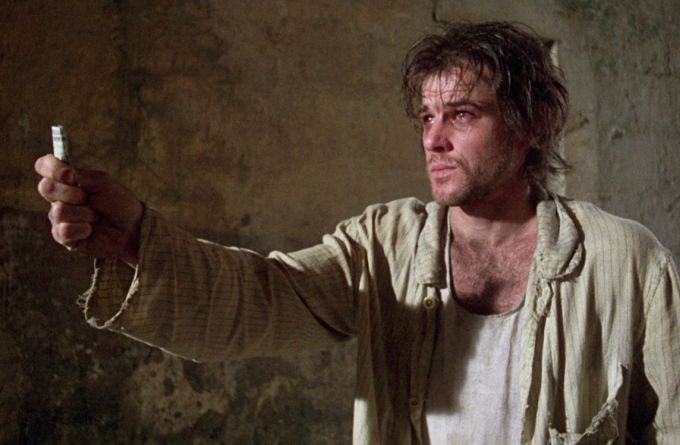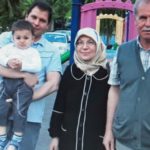The 1978 prison drama film “Midnight Express” tells the story of young American student Bill Hayes, who spent five years in various Turkish prisons from 1970 to 1975 after being caught attempting to smuggle two kilos of hashish out of Turkey. The Academy Award-winning film has once again attracted attention. Stephanie Grisham, a White House press secretary under former US President Donald Trump, mentioned in her newly released book, “I’ll Take Your Questions Now,” that during the 2019 G20 Summit, Trump out of the blue asked Turkish President Recep Tayyip Erdoğan whether he’d seen the film “Midnight Express.” The movie, which was one of the most controversial of its era, deeply offended the Turkish nation, with prison scenes described by critics as “nightmarish” and “unforgettable.” However, recent information indicates that the current reality of life in Turkish prisons is far worse than the shocking portrayal from four decades ago.
Considered one of Alan Parker’s greatest movies, “Midnight Express” is based on Billy Hayes’s 1977 non-fiction book of the same name. The movie won two Oscars and became a huge part of pop culture. The movie, which was filmed at Fort Saint Elmo in Valletta, Malta, after permission to film in Istanbul was denied, depicted Turkish prison guards and prisoners as sadistic, villainous and corrupt. Hayes, who made several trips to Turkey prior to his incarceration in 1970 and had a number of friends in the country including a girlfriend, later on several occasions expressed his deep regret for what he called a misrepresentation of people and an exaggeration of events as well as for the misunderstanding that arose from the film. California-based documentary filmmaker Sally Sussman, who premiered her new film “Midnight Return” in Cannes in 2016, spoke of the political ramifications, describing the devastating impact the movie had on the Turkish tourism industry. Sussman, who visited Turkey with Hayes to shoot the documentary, mentioned that “He [Hayes] was very emotional being back in Turkey because he really loved Turkey and he always felt bad about its portrayal in the film. … When he was back there, it was a chance for him to reassure Turkish people that ‘no. I don’t hate you’ …even if they hated him,” The Independent reported.
While “Midnight Express” was a very controversial film and deeply offensive to Turks, the reality is that torture and gross human rights violations by the Turkish state have been on the rise since a July 15, 2016 coup attempt. President Erdoğan has accused the Gülen movement of involvement in the coup attempt, and as a result members of the movement are subjected to ongoing persecution both in Turkey and beyond its borders. Turkish Islamic scholar and spiritual leader of the movement, Fethullah Gülen, who has been living in the US since 1999, strongly denies any involvement in the coup attempt. The recent testimony of post-coup victims detail the complete lawlessness and brutality in secret detention centers run by Turkish intelligence agency MIT across the country.
The international Turkey Tribunal, which consists of six judges, heard the testimony of 16 post-coup victims in Geneva on September 28 and found that some 3,000 complaints of torture are filed against the Turkish authorities each year. Kurdish sympathizers and Gülen movement members were found to be the most often targeted groups. After hearing from various Turkish teachers, journalists and members of the judiciary who were subjected to inhuman torture by the Turkish state, the judges concluded that “the acts of torture and enforced disappearances committed in Turkey, in applications brought before an appropriate body and subject to the proof of the specific knowledge and intent of the accused, could amount to crimes against humanity.” The South African-based Mail and Guardian newspaper reported that the Turkey Tribunal was preparing an application to the International Criminal Court after finding that torture and abductions have become systematic since the attempted coup in July 2016.
Despite recent findings during the Turkey Tribunal as well as other international bodies’ damning reports and criticism, such as that of the UN, Human Rights Watch, Amnesty International and the EU, the Turkish state continues persecuting several minority groups, in particular Gülen movement members. Post-coup victim Ayşe Özdoğan’s recent experience is a clear example of the persecution Gülen movement members are subjected to. Together with her husband, Özdoğan was detained on April 8, 2019, for alleged links to the Gülen movement. She was released due to her son’s heart condition but later developed cancer and required surgery. But she was rearrested and sentenced to nine years, six months in prison. Following public outrage and the efforts of Ömer Faruk Gergerlioğlu, an MP for the Peoples’ Democratic Party (HDP), she was again released on appeal on December 27, 2019. Özdoğan, who is now a stage 4 cancer patient whose teeth, palate, zygomatic bone and lymph nodes were removed in an emergency operation, was arrested on Saturday to serve a prison sentence on a terrorism conviction. Human rights lawyer and Republican People’s Party (CHP) deputy Sezgin Tanrıkulu criticized the Council of Forensic Medicine (ATK) for failing to issue a report stating that Özdoğan had stage 4 cancer and hence that the court should postpone the execution of her sentence to receive medical treatment. “And while the pro-government media reports it as if she were attempting to escape from justice, these same media outlets have never mentioned her illness. What tyranny! … There are thousands of detainees who are unable to exercise their health rights, their children were left unattended … I openly declare that these practices [of the Turkish government] cannot be tolerated in a state of law and that these are the practices of criminal laws for enemies,” Tanrıkulu said in harshly criticizing Erdoğan’s rule. “Enemy Criminal Law” was a thesis that was first suggested by German jurist Günther Jakobs in 1985 as a legal doctrine that gives the authorities the right to persecute those individuals who are viewed as sources of extreme danger.
Turkey is well known as a dream holiday destination for its historic sites, good food, stylish fabrics and friendly people, but those who are subject to the revenge of the Turkish state speak differently about Turkey. Yes, Billy Hayes was unhappy with the movie’s portrayal of all Turks as evil, but he never denied that he had endured torture. “I’ve had handcuffs on. Handcuffs are nasty,” he told the Las Vegas Review-Journal in an interview about his prison experience in Turkey, with no prodding. “Chains? There’s a whole different feel when they chain you. That brings back some deep, I dunno what, but I don’t like chains at all. I didn’t like getting tied and beaten, either.”
Hayes was luckier than Gülen movement followers as he managed to escape from prison and was welcomed by Greece and sent back home. But thousands of post-coup purge victims are not as fortunate and are imprisoned for “crimes” such as having an account at a particular bank or for charity work and are slowly and painfully dying in Erdoğan’s prisons. Ayşe Özdoğan’s fate is a clear example of the death of the rule of law in Turkey.
Source:Turkish Minute
***Show us some LOVE by sharing it!***



